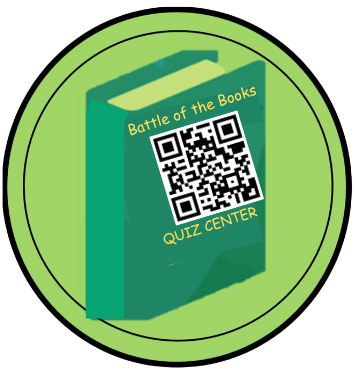The Battle of the Books is an exciting reading competition for students in elementary, middle, and high school. Teams read a designated set of books and answer questions about them in a quiz-like format, testing their comprehension, recall, and teamwork. For students and parents, success in this competition involves much more than reading—it’s about preparation, strategy, and collaboration. Here’s a guide to help participants thrive in the competition and enjoy the journey of learning together.
1. Book Selection and Preparation
Reading Thoroughly: All the designated books need to be read thoroughly because you never know what question may be asked. Students should be encouraged to read all the books, but an idea to help teams be effective without participation becoming overwhelming is for each team member to become an ‘expert’ on three or four of the titles.
Focus on Specific Details: Battle of the Books competitions often ask about specific details—character names, quotes, and specific events. Taking notes, highlighting key passages, or discussing significant parts with someone else can enhance recollection.
Use Study Guides and Practice Questions: Some programs provide study guides, but students can also make their own lists of facts, vocabulary, and notable events. Practicing with questions that mimic the competition format can be especially helpful for recalling information under pressure.
2. Teamwork and Collaboration
Collaborative Reading: Since Battle of the Books is a team-based event, reading and discussing the books together can be highly beneficial. This builds shared knowledge and can reveal insights one reader might miss alone. Encourage team members to share notes and discuss their interpretations of themes, character motivations, and settings.
Define Team Roles and Responsibilities: Organize team efforts by assigning roles—such as noting key themes, tracking characters, or summarizing each chapter. Having specific responsibilities keeps everyone engaged and allows the team to cover material more efficiently.
3. Effective Communication Skills
Practice Clear and Quick Responses: Quick, clear answers are crucial since many competitions have time constraints. Practicing under timed conditions will make students more comfortable responding quickly and accurately.
Strengthen Listening Skills: Good listening skills are key, especially when working under pressure. Encouraging students to pay attention to teammates’ ideas and communicate answers clearly will help prevent miscommunication during the event.
Interpret Questions Carefully: Some questions are framed in tricky ways and require close attention to details. Practice with questions that emphasize nuances or require interpretation, as this helps students prepare for varied question formats.
4. Parental Support and Involvement
Provide Encouragement and Motivation: Parents play a vital role in helping students stay engaged and motivated. Celebrate progress to keep spirits high, even during long reading sessions or tough study days.
Assist with Time Management: Parents can help students create reading schedules and set priorities, especially if they’re balancing other activities. Breaking up reading into manageable chunks helps reduce stress and allows more focused studying.
Create a Positive Study Environment: A quiet, distraction-free space for reading and studying can make a big difference in concentration and retention. Encourage regular study times in this space to create a productive habit.
5. Familiarity with the Competition Format
Understand the Rules: Knowing the specific rules—whether it’s a buzzer system, multiple-choice questions, or oral quizzes—helps students prepare strategically. Each format requires a different approach, so it’s helpful to know what to expect.
Practice with Question Styles: Some competitions focus on specific quotes, while others target broader plot summaries or character relationships. Past competition results or sample questions are often available and can provide a useful guide to the type of questions that will be asked.
6. Effective Time Management
Pace the Reading: With a set list of books to get through, pacing is important. Read too quickly, and details might be lost; read too slowly, and students could feel rushed as the competition approaches. Make a reading plan and stick to it, adjusting only if needed.
Balance with Other Activities: Many students have busy schedules, so time management is essential. Help them identify blocks of time for reading and studying without compromising other responsibilities and interests.
7. Foster a Competitive Spirit and Good Sportsmanship
Handle Pressure Positively: Competitions can be stressful, so practicing relaxation techniques or positive thinking strategies can help students stay calm and focused.
Encourage Sportsmanship: Model fair play, respect for competitors, and resilience whether the team wins or loses. Good sportsmanship is just as important as knowing the material and can make the experience enjoyable for everyone involved.
8. Review and Reflect
Reflect Post-Competition: After the event, take time to discuss what went well and areas for improvement. Reflecting on missed questions, successful strategies, or overlooked details can help students improve for future competitions and deepen their understanding of what they read.
Conclusion
The Battle of the Books is a rewarding experience that goes beyond reading. By focusing on preparation, teamwork, communication, and parental support, students can enjoy the process of learning and competing. More than anything, the event is a celebration of reading and discovery—so encourage students to savor the experience and take pride in their achievements, no matter the outcome.
